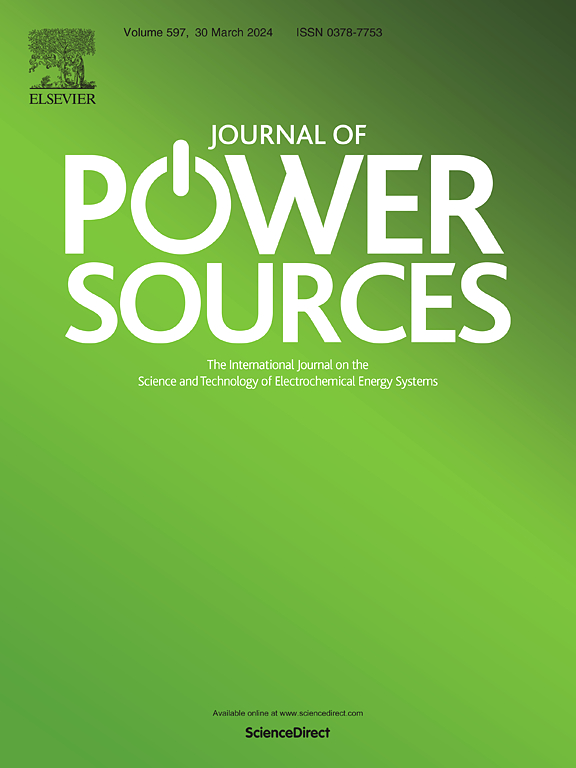Robust state of charge estimation for lithium-ion batteries using a fully entangled temporal convolutional network with particle swarm optimization
IF 7.9
2区 工程技术
Q1 CHEMISTRY, PHYSICAL
引用次数: 0
Abstract
Lithium-ion batteries are central to modern transportation, particularly electric vehicles (EVs). Accurate state of charge (SOC) estimation is vital for safety, efficiency, and extended battery life. While many methods exist, few address the challenges of SOC estimation at low temperatures, where battery behavior becomes highly nonlinear and measurement noise increases. To overcome this, we propose a fully entangled temporal convolutional network (FE-TCN) for SOC estimation across a wide temperature range, including low-temperature conditions. The model integrates the sequence learning ability of temporal convolutional networks with a quantum-inspired entanglement mechanism. Four parallel data flow paths, connected through Kronecker-product-based skip connections, enable effective information exchange and capture complex feature interactions. To ensure stable training under temperature-induced noise, the log-cosh loss function is employed, while particle swarm optimization (PSO) is used to optimize hyperparameters such as block depth, kernel size, and learning rate. Experimental validation demonstrates that the FE-TCN achieves high accuracy across -20 °C to 25 °C and under four driving cycles, with minimum mean absolute error and root mean squared error of 0.14% and 0.21%, respectively. Furthermore, the model maintains stable performance under different initial SOC conditions, demonstrating strong robustness.
基于粒子群优化的全纠缠时间卷积网络的锂离子电池鲁棒充电状态估计
锂离子电池是现代交通工具的核心,尤其是电动汽车。准确的充电状态(SOC)估计对于安全性、效率和延长电池寿命至关重要。虽然存在许多方法,但很少有方法能够解决在低温下电池行为变得高度非线性和测量噪声增加的SOC评估挑战。为了克服这一问题,我们提出了一种全纠缠时间卷积网络(FE-TCN),用于在包括低温条件在内的广泛温度范围内进行SOC估计。该模型将时序卷积网络的序列学习能力与量子激发的纠缠机制相结合。四个并行数据流路径,通过基于kronecker产品的跳过连接连接,实现有效的信息交换和捕获复杂的功能交互。为了保证在温度噪声下训练的稳定性,采用了log-cosh损失函数,同时采用粒子群算法(PSO)对块深度、核大小和学习率等超参数进行优化。实验验证表明,FE-TCN在-20°C ~ 25°C范围内和4个驱动循环下均能获得较高的精度,最小平均绝对误差和均方根误差分别为0.14%和0.21%。此外,该模型在不同初始SOC条件下均保持稳定的性能,具有较强的鲁棒性。
本文章由计算机程序翻译,如有差异,请以英文原文为准。
求助全文
约1分钟内获得全文
求助全文
来源期刊

Journal of Power Sources
工程技术-电化学
CiteScore
16.40
自引率
6.50%
发文量
1249
审稿时长
36 days
期刊介绍:
The Journal of Power Sources is a publication catering to researchers and technologists interested in various aspects of the science, technology, and applications of electrochemical power sources. It covers original research and reviews on primary and secondary batteries, fuel cells, supercapacitors, and photo-electrochemical cells.
Topics considered include the research, development and applications of nanomaterials and novel componentry for these devices. Examples of applications of these electrochemical power sources include:
• Portable electronics
• Electric and Hybrid Electric Vehicles
• Uninterruptible Power Supply (UPS) systems
• Storage of renewable energy
• Satellites and deep space probes
• Boats and ships, drones and aircrafts
• Wearable energy storage systems
 求助内容:
求助内容: 应助结果提醒方式:
应助结果提醒方式:


